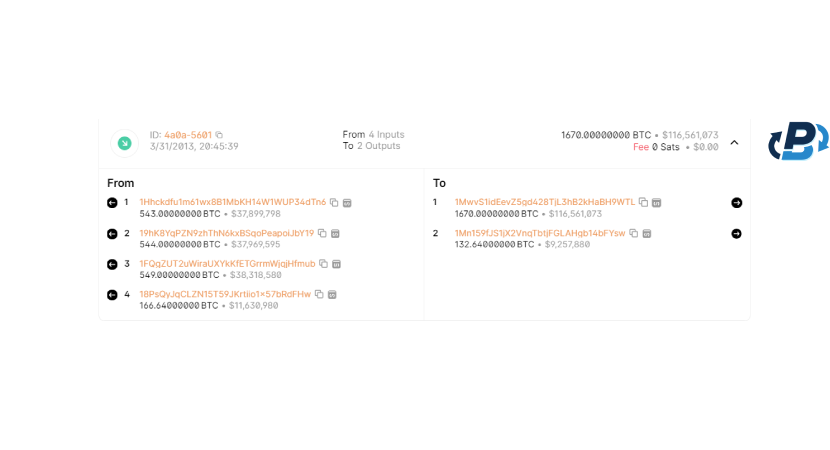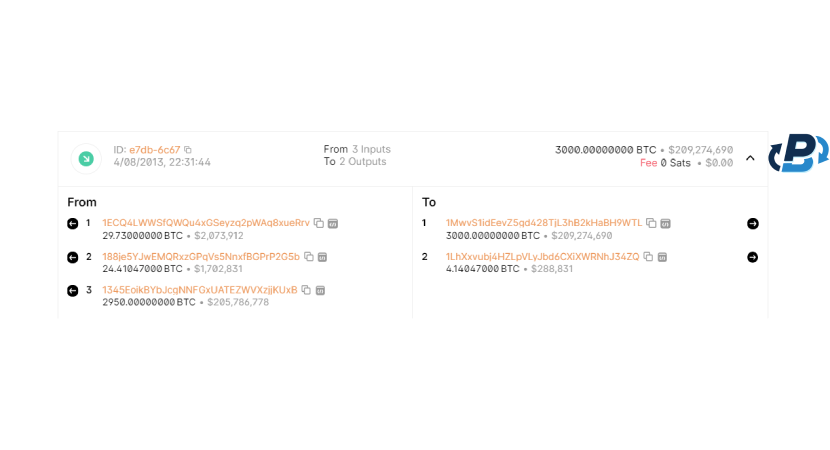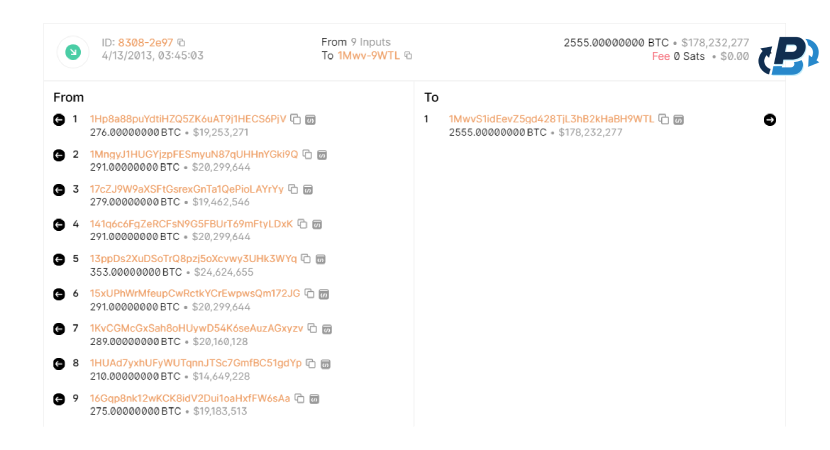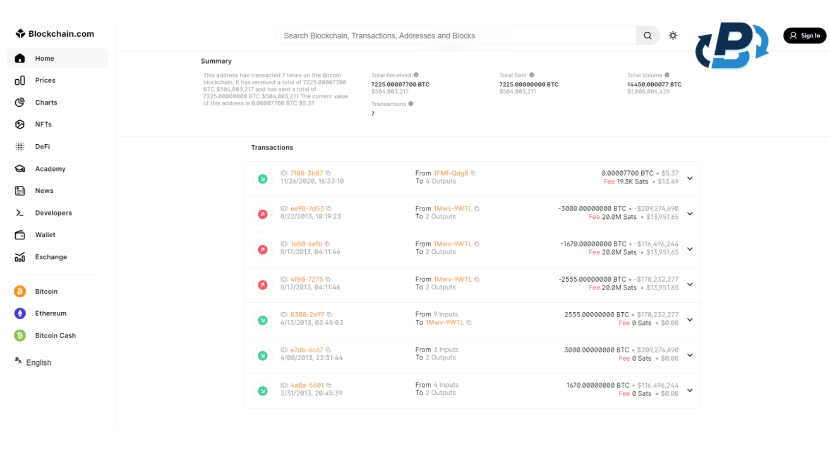In October 2018, silk Road’s alleged hitman was arrested in Vancouver. The infamous marketplace founder, who is now serving a double life sentence, was looking for a hitman for hire, and that's how both parties met. Ross Ulbricht RedandWhite was actually James Ellingson, allegedly the hitman Ross Ulbrichts hired to kill Friendly Chemist, one of the people at the core of the Silk Road's complicated infrastructure, who posed a real danger to Ross Ulbricht by threatening him to reveal the identities of users of the Silk Road. Friendly Chemist became a real menace to the anonymity and existence of the Silk Road and triggered a series of events that no one could have anticipated. The dark web, a part of the internet that is not indexed by conventional search engines and only accessible via a special kind of browser, has long been associated with illegal activities, anonymity, and mysticism. One of the most famous stories of the platform is about Ross Ulbricht, who was known as Dread Pirate Roberts, and the Silk Road marketplace he created. The Silk Road was not only a marketplace but also a beginning of the new age of economic freedom, in which the dark web gave anonymity.
This widely-reaching digital empire was a place for the anonymous sale of drugs, weapons, and other contraband, which went against the basic rules of law enforcement and digital ethics. Ulbricht, who strongly believed that anonymity and freedom were the basics of success in the digital era, was not merely a freedom fighter for digital rights but also a figure of contradiction in his principles. Ulbricht was facing a real threat from Friendly Chemist, who threatened to expose the identities of thousands of Silk Road users. Therefore, Ulbricht took the most drastic measure to ensure the anonymity and survival of Silk Road and hired James Ellingson, known as Redandwhite, a hitman who would kill Friendly Chemist. This step further highlights the gravity of the Ross Ulbricht Friendly Chemist case, demonstrating Ulbricht's unwavering commitment to safeguarding his digital space at any cost. In this PlasBit article, we investigate the story of Friendly Chemist, a shadowy figure who shakes the core of Ross Ulbricht’s digital domain. We also analyze the dynamics of Ulbricht, Redandwhite, and Friendly Chemist relationships and uncover the hidden factors that led to Ulbricht's downfall and the legacy of the Silk Road.
The Emergence of Ross Ulbricht Friendly Chemist:
The Friendly Chemist on the Silk Road left a deep imprint on the cybercriminal community. In addition to offering sensiti data that could be used to reveal Ulbricht's identity and the anonymity of the Silk Road, the Friendly Chemist became a symbol of potential chaos for the whole Silk Road community. He was armed with sensitive information that could have easily exposed the marketplace's anonymity net, the basis of the entire empire. This is how he became a significant threat to Ulbricht's digital empire.
The rise of the Lucy Drop and the Real Lucy Drop
In the intricate and multilayered tale of Ross Ulbricht and his dark web marketplace, Silk Road, the participation of "Lucy Drop" and "Real Lucy Drop" plays a pivotal role in the dramatic events that led Ulbricht decide to hire Redandwhite to eliminate FriendlyChemist. Lucy Drop was a highly-rated vendor on Silk Road at first, mainly selling LSD. However, after a while, the quality of his products began to decline. Thus, his clients started accusing him of an "exit scam," in which a vendor builds up people's trust and disappears after taking the payments and not delivering the goods. This decline set the stage for a significant conflict involving another user, FriendlyChemist.
The Threat of FriendlyChemist
In mid-March 2013, FriendlyChemist contacted Dread Pirate Roberts, claiming Lucy Drop owed him hundreds of thousands of dollars. FriendlyChemist communicated that he would disclose the identities of his top vendors and thousands of customers if his requirements were unmet. This threat made Ulbricht stand in a challenging situation since the revelation of user identities could have had a tragic outcome for the Silk Road marketplace.
The Intervention of Real Lucy Drop
The conflict gathered momentum, and a new member, Real Lucy Drop, appeared. He claimed to be the original owner of the Lucy Drop account and explained that he had been jailed for prior drug charges, and his business partner had taken over the account during his absence. Real Lucy Drop claimed that his partner was responsible for the falling quality of the product and the fraud associated with Lucy Drop. Real Lucy Drop also revealed that FriendlyChemist was their middleman who had supplied them with LSD. However, he was reluctant to fully cooperate with Ulbricht's demands for FriendlyChemist's identity.
The Threat, the Desperation of Ulbricht, and the Reveal:
Friendly Chemist’s threat of exposing the identities tied to the Silk Road operations put Ross Ulbricht in a very vulnerable position, and he considered actions that were not in line with his professed libertarian values. The odd demand by a peculiar guy on the internet who calls himself Friendly Chemist for a substantial amount of money in exchange for his silence was a significant problem. Friendly Chemist said that he had access to data that could expose the top vendors and even the usernames of thousands of people. This would undermine the trust and the foundation of the Silk Road and lead to its fall under the public eye and legal actions. This is an essential time for Ross Ulbricht RedandWhite negotiating, another dark web figure, to kill Friendly Chemist. This step is evidence of how much Ulbricht was ready to take to defend his empire from the digital world, which is the beginning of the end of the Silk Road story.
Ross Ulbricht Friendly Chemist Dilemma:
At the time when his digital empire was at risk of extinction, Ulbricht was faced with a dilemma. The thought of being in the public eye and the legal consequences put Ulbricht at a crossroads regarding his actions' moral and ethical aspects. The same principles he had been fighting for once, the Silk Road privacy, freedom, and anonymity, now clashed with the harsh reality of running an out-of-control community. Friendly Chemist brought to the surface the vulnerability of the Silk Road's infrastructure, unveiling the risks of staying in the dark corners of the digital underworld. During this crisis, Ulbricht made a decision that would forever alter his legacy: he was thinking over the possibility of getting an assassin to get rid of the problem of the Friendly Chemist.
The Descent into Darkness: Ross Ulbricht RedandWhite Deal
Ross Ulbricht's dream to create the Silk Road anonymity was like a dramatic turn in a criminal thriller. It was his darkest moment, and he had to explore the depths of the digital underworld. That was how he met Redandwhite, who was to become an essential character. Red and white, or James Ellingson, a Vancouver-based super key player involved in Silk Road's illegal activities, like drug sales and money laundering, was a symbol of the hitman Ulbricht had to hire to eliminate a rising threat to his digital empire, Friendly Chemist. This cooperation, which was taking place in the realm of the Silk Road, was a radical departure from his previously professed totalitarian ideals, and it showed his readiness to use violence to maintain his control over his sizeable digital empire. The deal with Redandwhite to kill the Friendly Chemist was unethical and took us to the depths of morality. However, the fact that the assassination was not planned but only staged brings the story to a new level of deception and manipulation, with Ellingson at the center getting a Bitcoin reward for a murder that was never committed. Therefore, they became more and more involved in the situation.
The Blockchain Evidence: The Ulbricht's Bitcoins Trial
Ulbricht's and the Redandwhitedeal was not only a verbal agreement but also a significant Bitcoin transaction that cannot be ignored as proof of Ulbricht's intention. In the end, Ulbricht paid 1,670 bitcoins, valued at $150,000, which was the first payment to hire a killer to kill Friendly Chemist. This transaction was recorded in the immutable digital ledger blockchain, thus making an unchangeable and traceable association between Ulbricht's actions. In the end, the transparency uncovered the irony of how Ulbricht was ready to do anything to protect the Silk Road and to identify the digital road that eventually led to his arrest. The Bitcoin trail relating to Ross Ulbricht RedandWhite dealings was the ultimate proof of the depth of his participation in the downfall of Friendly Chemist. The staged evidence of murder, however, was a ruse orchestrated by Redandwhite and became a scary reminder of the moral and ethical issues of the digital underworld.
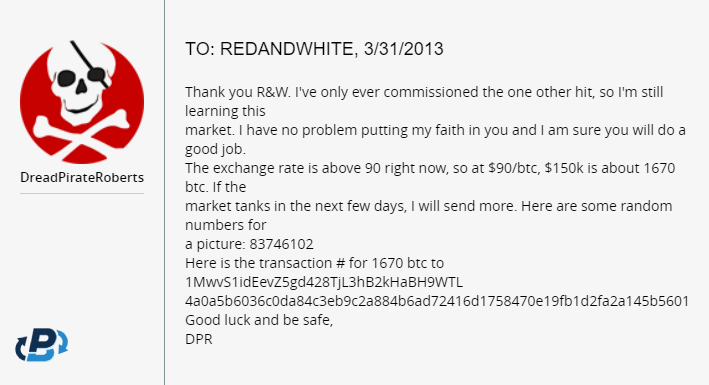
A Grim Facade: The Staged Proof of Murder
In a mysterious demonstration, Redandwhite sent Ulbricht an image that was supposed to be the body of the victim along with a sheet of paper with random numbers that Ulbricht had designated to make a morbid confirmation of the hit. This fake evidence, though scripted, demonstrated how far Ulbricht was willing to go to guarantee the security of the Silk Road. Ulbricht's request to be in the photo with the specific numbers was a way of verification, showing that he needed objective evidence even though the communication was digital. This part of the story, later revealed to be a trick, reflected what Ulbricht had to go through, from being a digital entrepreneur to a person entangled in the ethical and moral consequences of his actions in the digital underworld.
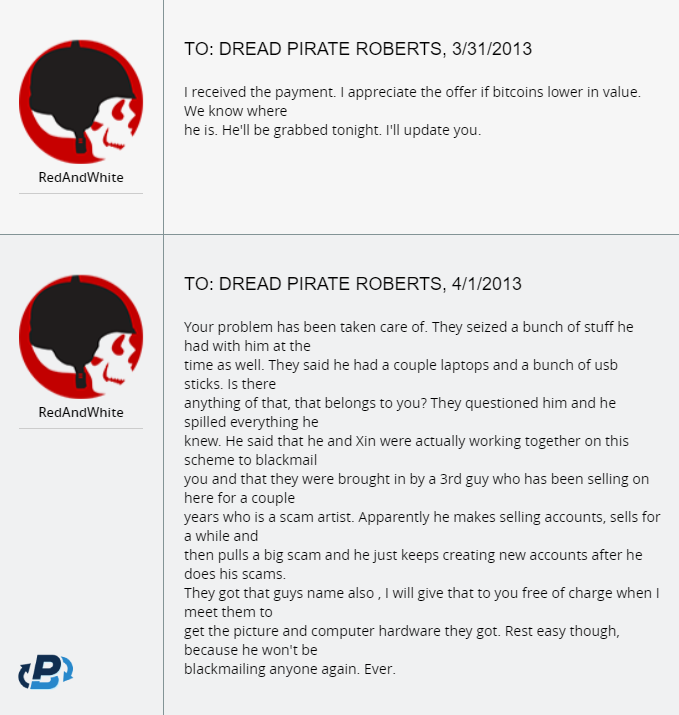
The Capture and Consequences:
Ultimately, the FBI's intervention and the mistakes Ross Ulbricht made brought an end to his reign over the Silk Road, resulting in his arrest and conviction. Nevertheless, Ulbricht's arrest was not only the end of the Silk Road but also a turning point in the history of the internet. The shift of his persona from a digital monarch to a convicted criminal was a warning sign of the risk of unchecked ambition and moral compromises. In a San Francisco public library, the digital curtain was pulled back to reveal the person behind the alias, thus the beginning of Ulbricht's journey from being a digital kingpin to a convicted criminal.
Life Behind Bars:
Ross Ulbricht's life after his arrest was as tragic as it was predetermined. Sentenced to life imprisonment without the possibility of parole, Ulbricht's life became a warning of the dangers of anonymity and the high price of limitless ambition. His time in prison was marked by remorse, regret, and an appeal for a pardon, a complete turnaround from the unlimited optimism that made him create the Silk Road.
Legacy and Lessons:
The story of Ross Ulbricht, Friendly Chemist, and the Silk Road is a fascinating digital story that embodies the purpose of the internet. It challenges the results of our digital conduct, the thin line between freedom and responsibility, and the far-reaching consequences technology can cause.
Blockchain Evidence and Transparency: Discovering Digital Trails
Blockchain, the technology behind cryptocurrencies such as Bitcoin, is a decentralized ledger system that records every transaction. It is transparent and secure, eliminating the chance of fraudulent activities. This aspect most notably characterized the Silk Road saga. It was helpful in the public and verifiable monitoring of transactions about Ross Ulbricht's case.
Understanding Blockchain's Immutable Ledger:
Blockchain technology is a distributed ledger continuously extended and consists of a chain of records linked and protected by cryptography. Every block contains the previous block's hash, transaction data, and timestamp. This system guarantees that the transaction is completed as soon as it is registered. The transaction cannot be changed retroactively by altering the subsequent blocks and the network consensus. Moreover, blockchain's immutability makes it a highly effective investigative tool for the virtual world.
The Role of Blockchain in the Silk Road Case:
The Silk Road case was one in which blockchain technology provided irrefutable evidence of transactions, even in cases where persons were accused of being hired to kill. The deal was recorded in the Bitcoin blockchain, which was open to the public and could be checked by anyone with an internet connection. They followed the funds flow to a level of transparency that helped the FBI link the digital wallets to criminal activities.
Ross Ulbricht Payments Records on Blockchain:
The dark story of Ross Ulbricht, who became famous as Dread Pirate Roberts of Silk Road, is depicted by a series of Bitcoin transactions that vividly show the extent of Ulbricht's determination to eliminate the threat called Friendly Chemist and other four people associated with him. This incident, which was significant in both the amount and the significance, was named the murder of Friendly Chemist. This paints a picture of a truly horrifying scale of the steps Ulbricht was willing to take to have complete control over his digital empire. To eliminate FriendlyChemist, the first of these transactions, identified by the ID 4a0a-5601, occurred on March 31, 2013, at 20:45:39. The wallet received 1670 BTC, which is $116,496,244 in today's value.
Following closely, the second transaction, marked by ID e7db-6c67, occurred on April 8, 2013, at 22:31:44. This time, the amount was equally as significant as the last one. On April 8, 2013, Ross Ulbricht made a big deal to Redandwhite, sending 3000 Bitcoins valued at around $500,000. This money was explicitly dedicated to the contract of the murders of four individuals linked with FriendlyChemist. These people were perceived as a significant threat to the security and functioning of the Silk Road. Ulbricht tried to nullify the danger by getting rid of FriendlyChemist and his accomplices who were involved in the extortion scheme.
It took only a few days for the price of Bitcoin to fall drastically from approximately $166 per Bitcoin on April 8 to about $90 per Bitcoin on April 12. To settle this loss, Ulbricht sent an additional 2,555 Bitcoins, which were worth $230,000 at that time, to make up the $500,000 that was agreed upon for the murders. This further payment was needed because the original financial agreement remained the same despite the fluctuations in Bitcoin's value. The final installment, ID 8308-2e97, was executed on April 12, 2013, at 03:4503:05.
The blockchain transactions that cannot be altered or erased are the digital evidence of Ulbricht's activities to ensure that the Silk Road was hidden and secured. If you are interested, the following are the transaction details for the Silk Road case related to blockchain evidence access and verification.
The Role of Digital Trust and Anonymity:
The rules of trust and anonymity are the basics on the dark web and the online black markets. Such digital realms provide a platform for anonymous communication, free from the risk of revealing one's identity to the outside world or facing repercussions for one's opinions. Nevertheless, the case of Ross Ulbricht and the Silk Road demonstrates the two-sided side of these ideas and their weaknesses.
The Catch in Trusting Anonymity:
The dark web's central paradox is that it works based on anonymity, but it requires trust. The Silk Road had a platform that required users to believe in the Tor network and Bitcoin as the means of secure transactions. However, this trust was often built on a shaky foundation, as it was impossible to identify the people behind the usernames by their real identities. The process of Ulbricht's thinking and negotiating with the Silk Road members about killing people for the sake of the Silk Road was a sign of the fact that the system that was based on trust was flawed. The consumers had to be confident that their transactions would be honored and that the platform managers would comply with the ethical principles, which was another misplaced trust.
Digital Anonymity’s Vulnerabilities:
The stage of digital anonymity was set up as the Silk Road case was unveiled. Anonymity was protected from government surveillance and social stigma, but at the same time, it provided a perfect environment for fraud, dishonesty, and deception. The complex scam that had Ulbricht on its web, with a false Ross Ulbricht hitman payment, is an example of how quickly trust can be abused. The blockchain technology used as evidence to convict Ulbricht proved that online anonymity is not unbeatable, as all digital trails can be followed back to real-life identities.
Ross Ulbricht’s Hitman Payment: A Cautionary Tale
Ulbricht's story is a case of a double-edged sword of trust and anonymity on the internet. On the one hand, it illustrates the potential creative and unlimited power of these principles, but on the other hand, it highlights the moral and legal hazards that come with them. Ulbricht's idea of the Silk Road was not bad initially, but the platform's anonymity and lack of accountability led to a spiral of increasingly questionable choices.
The Road Paved by digital Anonymity: A future to Explore
The Silk Road and its role in digital trust and anonymity clearly show that these principles should not be taken lightly. The online world is a complicated place that requires the development of more advanced notions of trust that anonymity may grant freedom and a veil for evil. The tale of Ross Ulbricht and the Silk Road might be paradigmatic examples of digital anonymity issues, eventually leading to a world of trust established on transparency, accountability, and ethics.

PlasBit: Raising Trust and Innovation
Although the story of the Silk Road demonstrated the dark side of digital anonymity and cryptocurrency, at PlasBit, we have positively used these technologies to create a platform with security, privacy, and ethical work.
From Anonymity to Accountability:
The history of the Silk Road was emphasized because it showed that digital anonymity was not flawless. Nevertheless, PlasBit shows how to use blockchain responsibly, including high-security measures and privacy, to guarantee that our client's assets and personal data are protected. To that end, we implement two-factor authentication, withdrawal confirmations, and cold storage, which makes unauthorized access almost impossible.
The Arrival of the New Era of Economic Freedom:
The Silk Road could have failed to establish a free economic area, but PlasBit is based on a new borderless monetary system that allows people to take control. The economy of freedom is not only our belief but also our feature of services. We do not only use words, but we also use the architecture of our services. From giving KYC-free cards to ensuring that the user funds are entirely isolated and secure, we take the fundamental freedom of people to master their financial assets without sacrificing or compromising on security or ethical values.
Transparency and Ethical Operations:
The Silk Road's legacy tells us we must have transparency and morality in the digital world. Through this experience, we have realized that we have developed a system where openness is not just a policy but an integral part of our operations. Compliance with regulations and VIP customer service is a must for us to demonstrate that we are a legitimate market player who adheres to legal and ethical norms. This makes us stand out from the rest of the cryptocurrency exchange industry.
PlasBit’s Legacy:
Although the Silk Road may have been the first to show the dark web the possibilities of cryptocurrency, PlasBit will change how the light shines. We are the exchange that showcases the fact that blockchain technology can be utilized to the advantage of all the members of the community who follow the principles of security, privacy, and ethical operations. We will always be there for our clients and are committed to providing them with a service and a place they can call their own. This digital age hideout allows them to protect their assets, autonomy, and anonymity. As the industry looks back and forward, PlasBit is a ray of sunshine in the crypto world that should be there. We are continuously improving our innovative development, customer-focused philosophy, and unwavering commitment to security and anonymity. Thus, we are shaping a better and brighter crypto world.
Conclusion: The Real Impacts of Ross Ulbricht and the Silk Road
Ross Ulbricht's tale of the rising and falling of a dreamer who eventually becomes a man trapped in the dark world of digital technology illustrates the complicated connection between the ambitions and the ethical boundaries of innovation. Initially, Ulbricht was the designer of the Silk Road, which was built as a platform where economic freedom and anonymity would co-exist. At the same time, in traditional financial systems, this was not achievable. But the dream was very short-lived due to the hardships of my new life in the darknet.The Silk Road story is a complex fraud, evidenced by the weaknesses of the digital anonymity world. The hoax done to him, the story about hitmen and threats to his empire, shows the dark side of the dark web, which is that trust is the main currency and the primary weapon. This event made Ulbricht financially worse off and removed the moral foundation of his initial goals, which caused him to embark on more illegal activities and lies.The story of Ulbricht's descent into the dark web teaches us the complexities of digital identities and how the boundary between privacy protection and illegal deals can be blurred.
Although the Silk Road is associated with many harmful elements, it was the driving force behind the emergence of cryptocurrencies. It is a practical example of a decentralized monetary system's benefits and risks of an uncontrolled crypto market.The Silk Road story and Ross Ulbricht is a tale of innovation, ambition, and a lesson of caution. The message is loud and clear: we have ethical duties that are the outcome of our power to shape the digital world. In the future, the cryptocurrency community will be able to use the lessons from the Silk Road about digital identity, security, and ethics in the digital world.With the Silk Road in mind, it becomes clear that the market was not just a platform for trading but a template for the conversation about privacy, freedom, and technology's power to enhance and destroy the ideals. The case of Ross Ulbricht and the Silk Road is whether innovation and regulation should be together, privacy and security should be balanced, or the digital world we live in should remain the same while not giving up our values.





